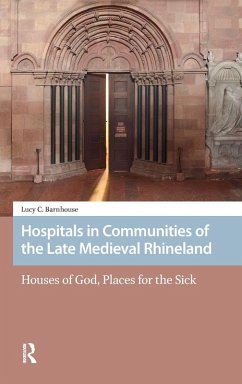From the mid-twelfth century onwards, the development of European hospitals was shaped by their claim to the legal status of religious institutions, with its attendant privileges and responsibilities. The questions of whom hospitals should serve and why they should do so have recurred - and been invested with moral weight - in successive centuries, though similarities between medieval and modern debates on the subject have often been overlooked. Hospitals' legal status as religious institutions could be tendentious and therefore had to be vigorously defended in order to protect hospitals' resources. This status could also, however, be invoked to impose limits on who could serve in and be served by hospitals. As recent scholarship demonstrates, disputes over whom hospitals should serve, and how, find parallels in other periods of history and current debates.
Hinweis: Dieser Artikel kann nur an eine deutsche Lieferadresse ausgeliefert werden.
Hinweis: Dieser Artikel kann nur an eine deutsche Lieferadresse ausgeliefert werden.








